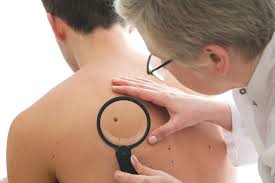Ten Skin Cancer Myths Debunked

● I am not at risk to get skin cancer because my routine doesn’t include any outdoor activities.
False. Brief sun exposure throughout the year can add up to significant damage, especially for people with fair skin. Do you drive your car with your sunroof open? Or walk around outdoor shopping centers? You could be exposing your skin to damaging UV rays.
● A tanning bed is safer than UV rays from the sun.
False. Don’t use them. Ever.
● People who tan easily and rarely burn will not get skin cancer.
False. There is no such thing as a healthy suntan. Any change in your natural skin color is a sign of skin damage, and tanning greatly increases your risk of developing skin cancer.
● Dark-skinned men and women are not at risk for sun damage and skin cancer.
False. Having a darker skin tone does not make you immune to skin cancer.
● If you have a funny-looking or suspicious mole, your doctor can always cut it off before it turns cancerous.
False. An annual (or more frequent) skin cancer screen is necessary to identify skin cancer in its early stages. The odd-looking mole on your arm may already be cancerous.
● You don’t need to wear sunscreen on a cloudy day.
False. The sun can burn your skin and cause long-term damage, even in cloudy weather.
● SPF 30 is all the SPF protection you need; anything higher is all the same.
False. Higher SPF sunscreens provide additional sunburn protection. Be sure to reapply sunscreen at least every two hours.
● Teenagers and young people don’t have to worry about skin cancer; it only affects older adults.
False. Melanoma is the most common form of cancer in young adults.
● Only UVB radiation can cause skin damage.
False. Both UVA and UVB cause sunburns and damage skin, possibly leading to skin cancer. Make sure your sunscreen is “broad spectrum”, providing protection from both UVA and UVB.
● I ski, snowboard and am outside a lot, but I don’t need to wear sunscreen because it’s winter.
False. Snow reflects the damaging rays of the sun, which can increase your chance of sunburn and damage to your skin.

